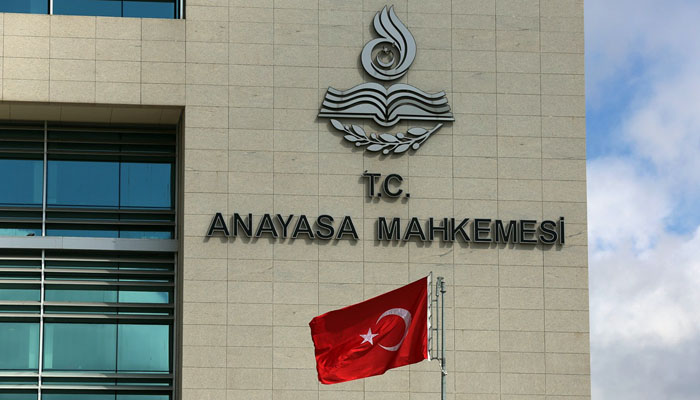Nationalist Movement Party (MHP) leader Devlet Bahçeli, Turkish President Recep Tayyip Erdoğan’s far-right ally, renewed his call to shut down Turkey’s Constitutional Court on Tuesday after its decision last week to return an indictment seeking closure of the pro-Kurdish Peoples’ Democratic Party (HDP).
Speaking at the MHP’s weekly meeting, Bahçeli lashed out at criticism over his earlier call to shut down the the top court, saying that remarks aiming to water down the call to close the high court were “duly noted” and that the people who made those remarks would have to face them in the future.
Bahçeli’s comments targeted Samir Altunkaynak, a senior member of the ruling Justice and Development Party (AKP) who said that attacking the Constitutional Court over its decision was “an attack on the rule of law in Turkey.”
The MHP chair accused the top court of backing the HDP and said its decision meant “losing the ground gained in military operations against separatist Kurdish militants.”
Bahçeli said the Constitutional Court could not continue to operate as currently structured and that the Turks are capable of and have the right to build a new top court that is “in line with the nation’s history.”
The top public prosecutor in Ankara on March 17 put an indictment before the Constitutional Court aimed at dissolving the leftist opposition HDP and banning 687 of its members from engaging in politics for five years.
The Constitutional Court judges on Wednesday decided unanimously to send the case back to the country’s top public prosecutor to fix “procedural shortcomings” in the file, according to Turkish media.
On the same day, Bahçeli said the decision was null “in the people’s mind” and added: “The HDP is a crime syndicate, a pawn of terrorism, a trademark for organized separatism. No procedural norms can change this fact.”
Using genocidal language, Bahçeli defined the HDP in December 2020 as “poisonous vermin” and repeatedly called for its closure until a legal move to ban the pro-Kurdish party materialized two weeks ago.
Ankara’s attempt to dissolve the HDP has drawn condemnation from Western allies and protests from human rights groups.
Erdoğan has long portrayed the HDP as the political front of the outlawed Kurdistan Workers’ Party (PKK). The party denies links to the PKK and says it is working to achieve a peaceful solution to Turkey’s Kurdish problem and is only coming under attack because of its strong opposition to Erdoğan’s 18-year rule.
Hundreds of HDP politicians, including the party’s former co-chairs, are behind bars on terrorism charges, while most of the 65 HDP mayors elected in the predominantly Kurdish Southeast in 2019 have been replaced by government-appointed trustees.


